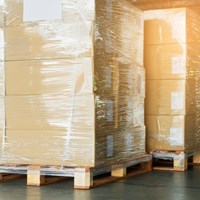Being environmentally sustainable is an extremely important part of how modern business’ operate.
How a business decides to meet these objectives can come in a variety of forms such as reduction of waste, improved efficiency through process reviews and educational programs. The issue with this is that these objectives can often be written down and forgotten on a day-to-day basis.
Communicating the importance of your sustainability policy can be tough and when not done correctly, there can be a lack
of commitment from the wider business.
If staff are unaware of these policies and goals this means that reaching your targets can prove to be a difficult task. By focussing on environmental issues your business can improve its efficiency while also developing staff engagement and awareness around this important topic. Improvements to other areas of your business can include increased operational efficiency, reduced costs and less material used to ship goods.
Sustainability is a global issue with the New Zealand Government looking to take strong actions to reduce our impact as a nation. In September the Ministry for the Environment released the National Plastics Action Plan to show how we will transition towards a low-carbon circular economy. The plan includes the plastics innovation fund, infrastructure investment and the phase out of single use or hard to recycle packaging.
One area you can make a significant impact in is your pallet wrapping operations. If running inefficiently it could have a dramatic increase to your impact on the environment. In our last 20 pallet wrapping machine evaluations, we identified that 85% of these wrapping operations were not performing efficiently, with the average plastic film reduction achievable at 29%. Most of the inefficiencies were due to poor stretch performance, mismatched film gauge and wrap cycle settings, leading to excessive pallet wrap consumption. Through reducing your consumption, you are also able to reduce the amount of packaging that your customers are receiving.



